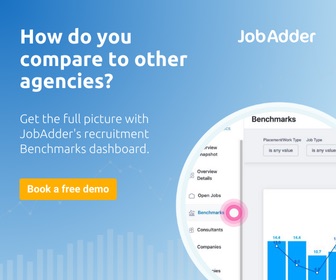With unemployment rates dropping and a rising global skills shortage, it’s never been more crucial for recruiters to make their job advertisements appealing. Our new survey at Talent.com demonstrates that salary transparency could play a huge role in attracting talent.
The need to create more attractive job listings was underlined by the figures released this month by the ONS. They showed the country’s unemployment rate currently sits at 3.5 per cent, the lowest it’s been since 1974. And it’s not just the UK – rates are similarly low elsewhere. In Japan, for instance, unemployment is at 2.5 per cent. In the US, it’s at 3.5 per cent, matching the lowest figure since the 1960s. Australia’s most recent reading was also 3.5 per cent, and the country saw its lowest rate in 48 years (3.4 per cent) back in July.
While low unemployment may be considered a sign of a healthy economy, it can of course also lead to labour shortages. This, combined with the fact that 76 per cent of global workers are unequipped with the digital skills needed for the future of work, means recruiters will have an increasingly smaller pool of suitable candidates to choose from. The war for top talent is ramping up.
Show me the money
So what will help one company attract the best candidates over another? Our new survey has found that salary is the most important factor for those looking to change jobs right now, particularly for Gen X. Thus, offering a competitive pay packet is a must – even more so than flexible working.
Not only that, but our research also indicates the importance of being clear about wage from the outset. Some 98 per cent of employees surveyed said they want to know the salary of a job before applying and would be put off if it’s not clear, while 79 per cent would support a law requiring employers to disclose salary ranges in job postings.
Applying for a job can be time consuming, so candidates are selective. If pay information is disclosed, it gives them an idea of the role’s level and whether they’d be content with the remuneration being offered. While this may mean losing out on some applicants who want more money, or attract a larger number of unqualified CVs motivated by the money, this could be seen as an advantage. Using salary to filter out anyone unsuitable saves both applicants and recruiters time.
It also fosters a good relationship between the candidate and company on first contact, meaning they may well apply for a more fitting job down the line.
Looking good
More broadly, promoting salary transparency indicates that a company is a progressive and ethical place to work. Some 71 per cent agreed that salary transparency would help to close the gender pay gap, and 66 per cent agreed this would too be the case for ethnic minorities. The added bonus is that this could attract more applicants from a wider pool, such as women and those from minority backgrounds.
Reality check
Although candidates are calling out for salary transparency, only 20 per cent of jobs aggregated on the UK platform of Talent.com currently include that information. Traditionally, this is down to employers believing they’ll get fewer applicants should they divulge the wage. There’s also the worry that salary transparency will put fixed-cost pressures on their business. However, in the reality they’re now facing, employers need to adjust their thinking if they want to attract the best and brightest.
Furthermore, salary transparency could actually attract candidates who may not have bothered applying if no pay benchmark was given. It could also save a company money in the long run if you consider the high cost of turnover when unsuitable employees leave and need to be replaced.
Open and honest
In fact, being open about pay could help retain employees too. Firstly, it creates a much-needed relationship of trust between a company and its workers, which can lead to a higher level of engagement and job satisfaction.
Secondly, almost one-third of survey respondents reported they’d experienced pay discrimination due to their age, race, gender or disability. Young women, especially, have faced this issue and cited it as a reason they left their previous employer. Salary transparency levels the playing field; it makes it easy for people to see whether they’re being paid fairly and, if not, question why.
A final takeaway for recruiters: more than 40 per cent of respondents, especially women and young people, said they have difficulty discussing salary in interviews. The onus is on recruiters to find better ways of discussing this so they don’t fall at the last hurdle – having a job offer rejected because the money isn’t right. Being clear about the salary from the start could significantly reduce recruitment costs and save everyone time. We are watching this space with interest, and look forward to seeing the impact of salary transparency on the world of recruitment.





